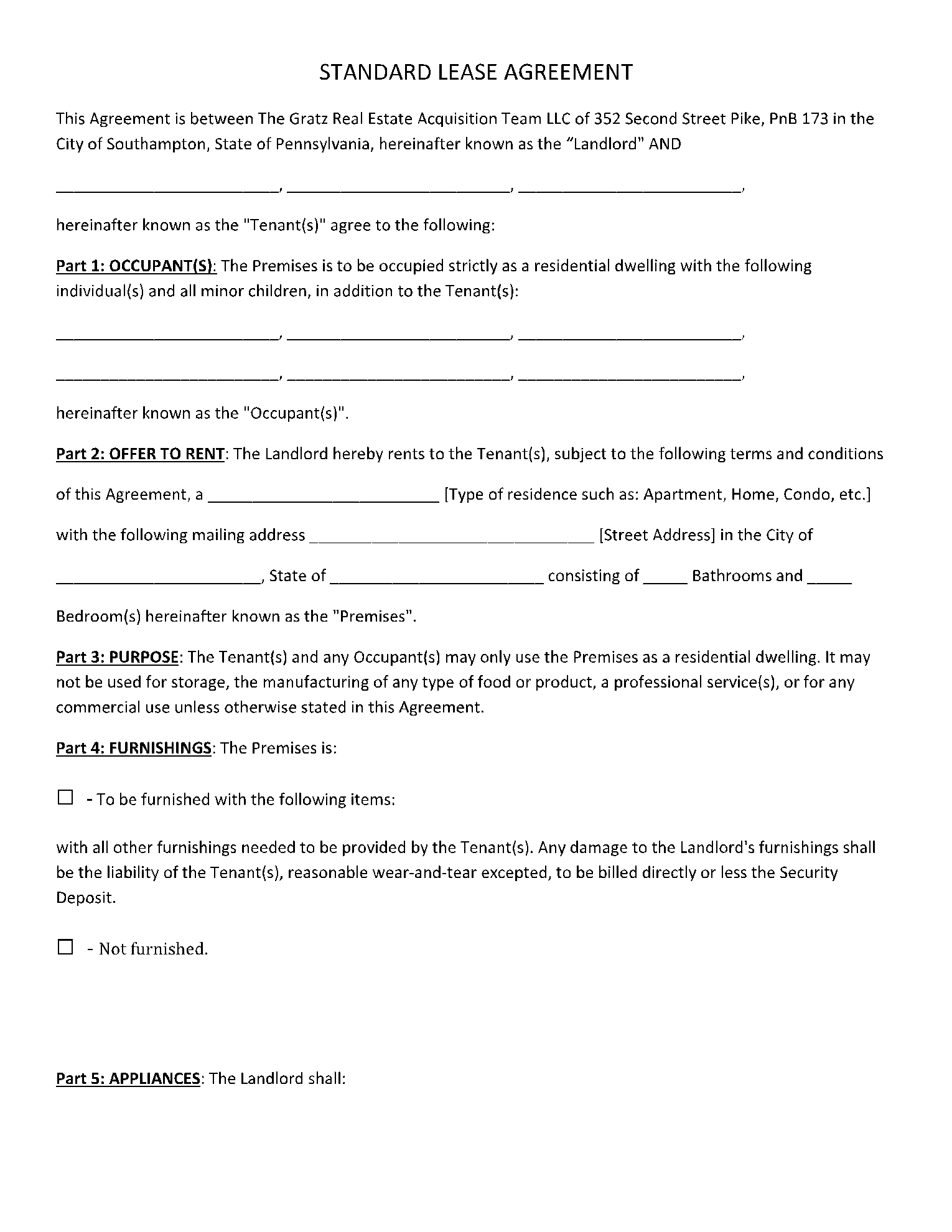A Pennsylvania standard residential agreement is the most widely recognized kind of rent; it's utilized for most occupancy associations. The lease is being paid on the first of every month consistently. Before rent marking, the landowner will typically look through the tenant's credit profile and check their work to ensure the month-to-month lease will be paid.
Pennsylvania (PA) Lease Agreement
A Pennsylvania lease agreement permits landowners to lawfully lease property to tenants paying rent. It is prompted to confirm their occupant's pay and work status preceding approving a rent. This will give verification that they can manage the cost of the lease. When marking the rent, the occupant will be committed to providing installment to the security deposit and the principal month's lease.
However, as long as states meet the Federal least prerequisites for renting and leasing, they are allowed to draft state-explicit laws on landowner and occupant law.
For instance, a few states may force more perplexing rent control laws, while others may require move-in and move-out agendas or certain non-refundable charges. To best ensure yourself and your monetary and lawful rights, it is suggested you acclimate yourself with Pennsylvania's essential qualifications.
Pennsylvania Rental Agreement Security Deposits
- The province of Pennsylvania has set the security deposits greatest to 2month of the lease the first year.
- The cut-off time for returning the security deposit is 30 days following the end of the rent or after the acquiescence of the premises.
- The security deposit interest goes to the tenant after the second commemoration of giving the deposit. Nonetheless, the property manager gets the cash for the managerial costs, which is one percent every year, upon the security cash stored.
- Holding a different store ledger is a necessity. It applies to reserves held for over two years or more $100 held in an escrow account controlled by the national government or the state. The property manager ought to advise tenants to record as a hard copy the name and the locations of the financial establishment where the store is held.
- The territory of Pennsylvania has no rules for non-refundable charges, application expenses, or non-refundable and extra charges. However, the ordered rundown of move-out assessments with harms and charges ought to be given within 30 days.
- No rule exists for record-keeping of store retention. Likewise, if the landowner neglects to return the excess store in the wake of retaining for 30 days, at that point, the landowner should pay twofold the measure of the store, in addition to intrigue.
Tap Here to Edit Your Rental Release Agreeement Online with CocoDoc!
Pennsylvania (PA) Residential Rental Lease Agreement Law
Pennsylvania tenants are lawfully qualified for a rental that meets essential underlying wellbeing and security norms. Likewise, it should be in decent shape compliant with the landowner's suggested guarantee of liveability, inferred directly in each composed or oral private rent.
Under the suggested guarantee of liveability law, the tenant's commitment to pay lease and the landowner's commitment of keeping up tenable premises rely on one another. Suppose the landowner breaks his commitment of keeping the premises in a sensible condition. In that case, this may calm the occupant from his commitment to pay part or the entirety of his lease until the landowner makes essential fixes.
However, the landowner should be pulled out of deformities and a sensible chance to make fixes, yet he doesn't need to vow to fix before the occupant retains the lease. Moreover, while there is no ordered notification before the landowner enters the premises to address maintenance, we suggest furnishing the tenant 24 hours' notification.
Conclusion
Under Pennsylvania law, landowners should reveal explicit data to tenants generally in the lease agreement or tenant contract, for example, the name and address of the financial organization where the security deposit is.
